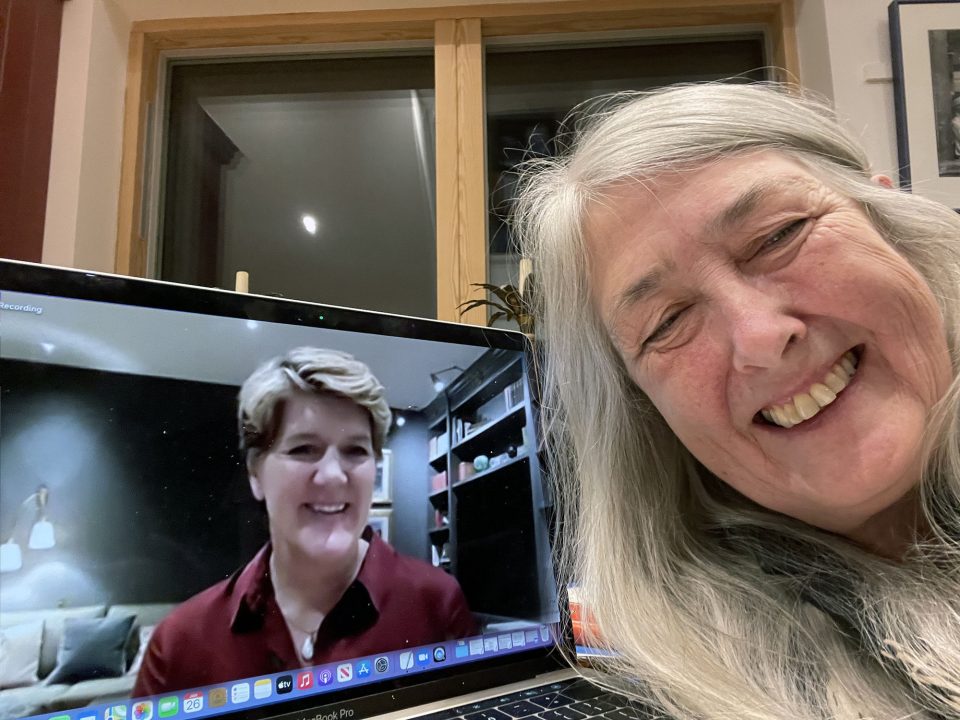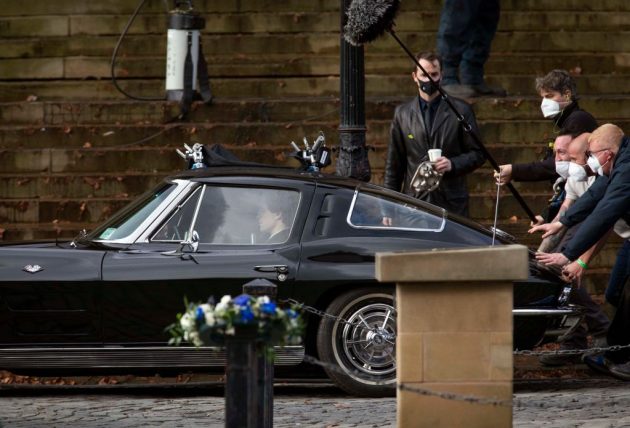The show must go on: How UK film and TV ploughed through the pandemic

From Tiger King to The Serpent, hit TV shows have become cultural currency in an era defined by lockdowns.
With millions of Brits forced to stay at home, film and TV has been one of the few avenues for entertainment over the last year, providing a much-needed dose of escapism during the pandemic. But for broadcasters, increased consumption has often failed to translate into higher revenue, with steep declines in the advertising market compounded by a shutdown in production.
Despite this, the UK’s booming production sector has battled through the crisis and, as companies eye a return to normality, the arms race to produce the best new content looks set to continue.
Getting clever in Covid times
Barely any industries have emerged from the pandemic unscathed, and the production sector is no exception. Ben Roberts, chief executive of the British Film Institute (BFI), describes 2020 as an “unbelievably tough year” for the business.
As the UK was plunged into its first lockdown in March, production came screeching to a halt. There were immediate victims, such as ITV’s Love Island, and the fallow period for filming sparked fears of holes in broadcasters’ schedules.
But filming resumed in May — albeit with strict guidelines in place — as the government began to ease the toughest lockdown restrictions.
“Covid has made TV quite resilient,” says Mihir Haria-Shah, head of broadcast at media agency Anything is Possible. “Production companies really became quite clever in the way they did things in a Covid-friendly manner.”

Coronation Street, which was taken off air for the first time in its 60-year history, roped in actors’ real-life partners for “intimate” scenes to ensure social distancing guidelines were adhered to. Rival soap Eastenders took similar steps, installing clear perspex screens on set and using camera tricks to make actors look closer together.
Elsewhere, producers made full use of video conferencing, from guests appearing on talk shows remotely to fully-fledged Zoom series such as David Tennant and Michael Sheen double-act Staged.
Production companies were also boosted by the government’s £500m film and TV restart scheme, introduced in October, which provided crucial insurance cover and is estimated to have saved almost 20,000 jobs.
As a result, the industry has weathered the storm comparatively well. Figures released this week by the BFI showed UK production spend fell just 21 per cent to £2.8bn last year, despite six months of disrupted filming schedules.
“Last spring it was hard to imagine that we would be generating £1bn worth of production activity in the final quarter, which has been achieved by industry and government pulling together and the determination of our workforce to get back up and running,” says BFI’s Roberts.
Streaming strides ahead
While the streaming wars have been escalating for several years, no one could have predicted the set-piece battle that would arise as a result of the pandemic.
Netflix has been the clear winner of the crisis, cashing in on its broad catalogue of films and TV shows. By the end of the year, the Silicon Valley streaming giant had smashed past the 200m subscriber milestone.
“[Netflix] benefited from having first-mover advantage,” says Haria-Shah. “They’ve got such a deep content library that there was always something new to watch, even if it wasn’t necessarily new to the platform.”
Disney Plus also benefited from pandemic viewing, launching its new streaming service in the UK on the eve of the first lockdown, though its subscriber growth has since slowed.
By contrast, cinemas have borne the brunt of the crisis. With venues closed for vast swathes of the year, attendance plunged 75 per cent. To compound these woes, studios have delayed the release of some of their biggest titles, such as eagerly-awaited Bond film No Time to Die, meaning cinemas have lacked the blockbusters needed to entice audiences.

There was further trouble for cinemas after Disney shunned theatrical releases for two of its biggest hits of the year — Mulan and Soul — sparking fears that the pandemic could start a trend of direct-to-streaming film launches.
But MGM, the studio behind the Bond franchise, dismissed reports it was mulling a streaming release, and cinema bosses remain optimistic that punters will return to the big screen once the pandemic is over.
Moreover, as production work has resumed across the industry, traditional broadcasters such as the BBC, ITV and Sky are beefing up their content slates as they look to close the gap on their larger streaming rivals.
“Netflix had such a head start during Covid because of their content libraries, but it’s now almost back to level playing fields,” says Haria-Shah.
The content clash resumes
With vaccine rollouts underway and an end to the pandemic in sight, the industry is now looking to resume the fight for viewers.
“Production recovery in the UK is well underway and demand for content is not only still there, but in fact greater than ever before,” says Adrian Wootton, chief executive of the British Film Commission.
Booming demand for content to fuel the streaming wars has driven up demand for production space, and the UK is growing into a hotbed for film studios.
Netflix and Disney have both expanded their studio space around the capital, while Sky is preparing to open a new film and TV complex near Elstree in north London. Other projects include Eastbrook Studios in Dagenham and early plans for Blackhall Studios to open the UK’s largest purpose-built production complex just outside Reading.
On top of this, media groups are pumping more and more money into their production efforts as they look to get ahead of their rivals. Sky is pushing ahead with plans to double its content budget to £1bn by 2024, while Netflix splurged a similar amount last year on UK shows such as The Crown, The Witcher and Sex Education.
In particular, broadcasters and streaming platforms are increasingly battling over high-end TV amid growing demand for big-budget dramas. High-end TV spend fell just 11 per cent last year, buoyed by upcoming series such as Anatomy of a Scandal, and eclipsed the amount spent on UK films for the first time.
It will not all be plain sailing. Just this week filming was halted on the latest Fantastic Beasts film after an employee tested positive for Covid-19, while ITV has been forced to cancel Britain’s Got Talent 2021.
But despite the distraction of the pandemic, producers will be firmly focused on filling up their content war chests and pulling ahead in an increasingly crowded entertainment market.
“The streaming wars have been turned up even more and the only way to get ahead is to consistently produce new content,” says Haria-Shah.